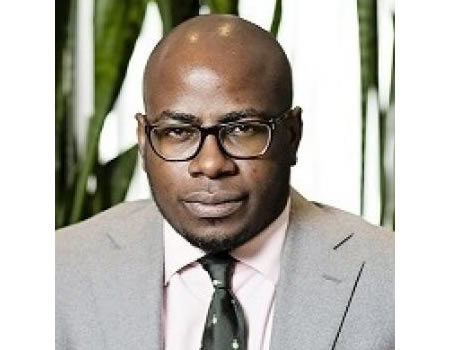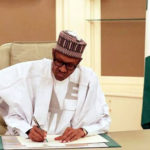
Olusola Lawson is the Investment Director for West Africa at African Infrastructure Investment Managers (AIIM), a member of Old Mutual Alternative Investments (OMAI), and the most experienced infrastructure equity investment manager in Africa. AIIM has a track record of over 17 years and US$1.9 billion in assets under management across the power, telecommunications and transport sectors on the continent and operations in East, West and South Africa. Lawson, who holds a B.Sc. degree in Economics from University College, London, has played a key role in originating investments in West Africa. He led AIIM’s investment into IHS Towers and Nigeria’s Azura-Edo IPP, as well as playing a key role in the investment into Cenpower Generation Company in Ghana. He was at the 6thPowering Africa Nigeria Summit, held at Transcorp Hilton Hotel, Abuja, where he spoke on Africa’s power investment and infrastructure. Excerpts:
What do you think are Nigeria’s current power infrastructure requirements and what do you think are the ways the projected 17,000-megawatt demand can be achieved?
In terms of what the requirements are, let me put it this way, an average Nigerian consumes three per cent of what an average South African consumes and Nigeria is about the same size of South Africa in terms of potential. South Africa has 60 million people and Nigeria has 180 million people. South Africa has about 40,000 MWs, while Nigeria has 6,000 MWs, so that shows you that with the potential we have, if we are able to generate 20,000 MWs in grid power, I believe we will meet the projected demand. 20,000 MWs will be sufficient for Nigeria’s industrial, commercial and residential use.
What are the challenges you’ve faced in executing infrastructure development in Africa? Such as funding, private partnership involvement, etc.
Let’s start with the basics. In every economy, the biggest infrastructure funder is usually the government. It is the government that builds most of the roads, airports and provides basic services. We are private sector investors, and interestingly, in our 17 years in operation, we have successfully managed $2 billion worth of investment. We are probably also the longest running private investment managers on the continent. Over the course of these 17 years, we have been involved in many deals and have learnt equally many lessons. One of which, is that when delivering a project, you need to consider value for money. There is no point building expensive roads that cannot deliver income, it simply can’t work. It may look good on paper, but you still need to deliver a service that provides value for money.
Secondly, the services you deliver need to have the right impact on the community and should be people-oriented. Once you have those two elements in place, you need to have a stable legal, regulatory and sustainability plan. As an investor, you do not want the next government to come in and cancel a project. So, a stable legal, regulatory framework is important along with a macro-economic environment that attracts investors and returns value on the investment because it is particularly difficult to achieve good value for an investment in a fluctuating economy. So, for us to become involved in any deal and put our investors’ money to work, you need to guarantee us good returns.
Do you partner with governments in soliciting financial assistance or financial institutions in securing loan facilities for your projects?
The first project we did in Nigeria was with Lekki Concession Company (LCC), in Lagos. We were the largest shareholder in the project and partnered with the local-private sector and the Lagos State government in helping to implement the project from conception to execution. Since then, we have invested in private companies like IHS Towers, and also invested in most of the major telecommunications towers in Nigeria in what are largely private sector deals. Another project is Azura Power, a 450 MW grid power plant and we also partner with the Edo State government to deliver outstanding projects.
What has been the Nigerian government’s collaboration, does the government partner with you, do you advise governments on investment-related issues and when you give advice, do they implement it?
As I mentioned, we have been on the ground for a long time and have executed many projects alongside a number of different governments. LCC was a ground-breaking achievement in our history. We received support from the Lagos State government and also had Federal Government assistance. For the Azura Project, Edo State government was involved. Generally speaking, the support for private-public partnerships in Nigeria has been wonderful and we have a body of specialists, who are experts in their fields, that pursue these deals and liaise with the relevant government authorities.
What is Nigeria’s renewable energy potential and the key areas of interest for your organisation?
There are many areas of interest for our organisation. For example, the sun does not shine in some parts of the country, so in terms of radiation and sunshine, certain areas have more potential than others. With solar, we have an estimated 40 kilowatt of renewable energy potential. There are two ways to ensure that we utilise this effectively. One way is through big grid projects, though these can have constraints. For example, if the sun doesn’t shine for 12 hours, that means you can only generate power for 12 hours and the power for that particular plant is going to be fluctuating. The other solution is using renewable power from a solar home system, where people can charge mobile phones, power light bulbs, televisions, and radios, for example. The solar home system is particularly effective because it can help small businesses thrive. It also has the advantage of integration with batteries just like with inverter systems that people use at home. So such a system on a much bigger scale is another big potential for solar power in Nigeria.
What are some of the projects that you have executed successfully in Nigeria?
We invested in LCC in 2008, which was a big success. Then there was IHS Towers in 2012, in which we are still invested today. We invested in Azura Power in 2012 and are still shareholders.
How do you sustain those projects?
The most important element is to have a management team capable of implementing our plans. There is no substitute for having the best people, who have sound experience in managing companies, and one of the biggest things we have done is to find a reliable team of experts that manage our affairs and investors’ money. This has been of great help to our company. We are committed to developing Africa’s infrastructure projects.
ALSO READ: Osinbajo launches 20,000 household solar home system project
WATCH TOP VIDEOS FROM NIGERIAN TRIBUNE TV
- Let’s Talk About SELF-AWARENESS
- Is Your Confidence Mistaken for Pride? Let’s talk about it
- Is Etiquette About Perfection…Or Just Not Being Rude?
- Top Psychologist Reveal 3 Signs You’re Struggling With Imposter Syndrome
- Do You Pick Up Work-Related Calls at Midnight or Never? Let’s Talk About Boundaries





